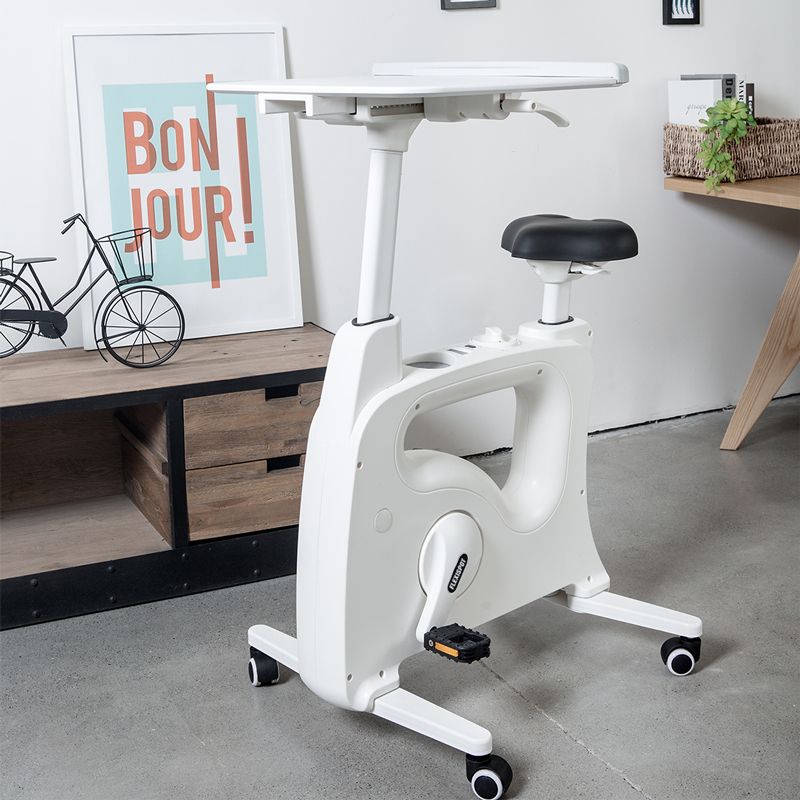Picture this. You’re an ER nurse who had to go through the chaos of the pandemic. You work on rotating shifts for long hours and in full protective gear from head to toe. You come home to your daughter and mother who rely on your hard work to support their day-to-day living. You receive bad news that your husband was aggressively trying to get a hold of your daughter and now you have to relocate for safety.
You’ve gone through a lot in life that you already know that the everyday grind isn’t sugar and everything nice. It’s easy to give up through tough times but before you know it, your doorstep would be filled with bills demanding to be paid. Even when faced with a personal crisis, there is no choice but to continue to work.
This is why experts advise keeping work and life balance separate. Your mind is in chaos so it’ll be terribly difficult to be efficient at work. But if you have the right mindset and have incorporated good habits, then this is a workable situation. We listed down some notes to stay productive at work in the midst of a personal crisis.

1. Be open and communicate.
How much of your predicament will you be comfortable to divulge in your workplace? You are entitled to privacy so make sure to only disclose what your office needs to know (for example, you won’t be able to go to work because you have to file a temporary restraining order in court). Be wary of sharing with a friend from work; only share your most personal problems with a colleague that you fully trust.
The next step is to observe your company’s culture and assess what will be the most appropriate way for you to communicate your problem. If you’re blessed with an open office culture, then it’s probably safer for you to share what you have been going through at home. But again, to reiterate, don’t go into detail and only share what will affect your work. If in another case, the work dynamic in your office is very professional, it would probably be best to keep the information between you and the HR department, office manager, or your direct superior.

2. Finish your tasks by breaking them down into small, manageable action steps.
With so many things going on in your mind, it’s understandable why you struggle to get your work done. You’d probably have a breakdown sometime when it becomes so overwhelming and frustrating that you don’t know what to do anymore. If this happens, don’t hesitate to leave your desk, inhale, exhale, and walk outside for a while.
But at work, a meltdown couldn’t last for long. You still have to finish work so make sure to plan ahead and break down your duties into small, manageable tasks. Be very specific when writing your to-do list on a whiteboard or your journal (for example, five messages nonstop and write 1,000 words before hitting pause and taking a break during the day).

3. Only say yes to the things that you can deliver.
Take this professional mindset. You’re helping yourself and your employer if you learn how to say no. List down your tasks according to an order of priority. Give your focus to those on top of your list because these are marked urgent and important. Know your job order by heart or never lose your copy so you could kindly say no to tasks that aren’t part of your job description. If your superior insists, devise an alternative plan that won’t add extra workload for you.
Just like in relationships, you have to set boundaries or non-negotiables. This is doing your employer a favor, especially at this difficult time when you are unable to perform extra favors. You’ll be able to manage expectations if you do not overpromise.

4. Ask for SOS or learn how to delegate.
You are a normal human being who is facing a major life crisis and already doing your best not to let it trickle down into areas of your life. You deserve an Oscar for a world-class act so there is absolutely no need to put added pressure on yourself. Be compassionate to yourself and accept your limits. Realistically speaking, you need more hours to finish an assignment so indirectly ask people for help by requesting a deadline extension. You may also inquire about your benefits as an employee (and have this photocopied for future reference. For example, your health insurance could cover your mother’s hospitalization or other bills.

5. Do not take your health for granted.
You need to be in good physical and mental shape through a difficult time. The last thing you want to happen is to get sick and still have to deal with everything that is currently happening in your life. Not prioritizing your health would just add another problem. Meditate at least once a day and check up on yourself.
One way that you can stay active even while working is through using a desk bike. Flexispot carries a V9 Pro Home Office Height Adjustable Cycle Desk Bike that’s a perfect work companion to boost your energy and help you stay alert and focused. You may do some light or heavy cycling based on the resistance level that you choose. The seat is height adjustable, the laptop tray removable, and the caster wheels allow easy movement in the room. It also has an integrated digital display that helps track calories burned within a time frame. Even if you’re crumbling into pieces inside, what matters is you are able to inject healthy movement into your life.

6. Take a vacation.
We’re not saying you have to spend money at a time that you need it for hospital care or medication. You may take a break that will require little to no money for you to recharge and relax. Use your paid leaves and take time off from work. This will help you in a way to refresh and not let your current energy affect your officemates.